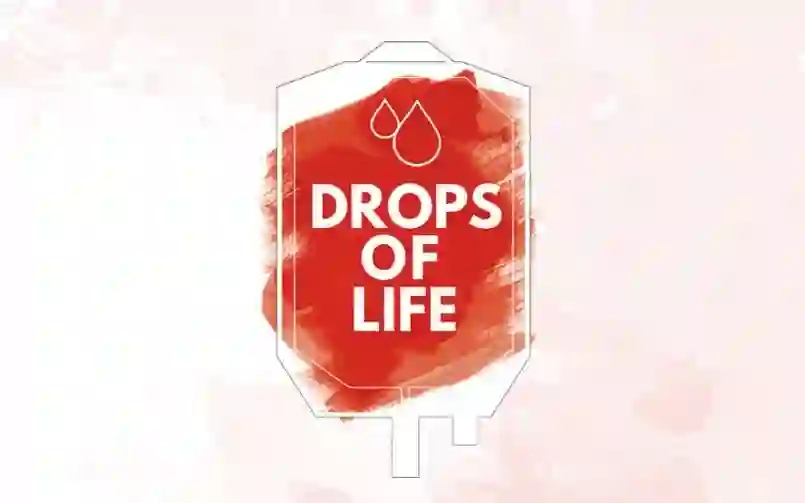This year’s theme is to create an awareness of the need for regular blood donation. Its main objective is to ensure that all individuals and communities have access to affordable and timely supplies of safe and quality-assured blood and blood products, as an integral part of universal health coverage and a key component of effective health systems.
Blood is an important resource, both for planned treatments and urgent interventions. It can help patients suffering from life-threatening conditions live longer and with a higher quality of life, and supports complex medical and surgical procedures. Blood is also vital for treating the wounded during emergencies of all kinds (natural disasters, accidents, armed conflicts, etc.) and has an essential, life-saving role after child birth.
Unfortunately, as a result of lack of knowledge, there is a serious shortage of blood donors. On this World Blood Donor Day, observed on the 14th 2019 June every year let us all pledge to actively take part in blood donation drives.
Some FAQ s by donors:
Q. Can a diabetic patient donate blood?
Q. If I smoke can I donate blood?
Q. Is Donating blood painful?
Q. How long does the procedure take?
Q. What are the criteria to be a donor?
- Donor should be healthy, fit and not suffering from any transmittable diseases can donate blood.
- Donor must be 18 -60 years age and should have a minimum weight of 50 kgs.
- Donor’s Haemoglobin level must be 12.5% minimum.
- A donor can again donate blood after 3 months of the last donation. Pulse rate must be between 50 to 100mm without any irregularities.
- Blood Pressure Diastolic 50 to 100 mm Hg and Systolic 100 to 180 mm Hg.
- Body temperature should be normal and oral temperature should not exceed 37.5 degree Celsius.
Q. Who cannot donate blood?
- Patients of cardiac arrest, hypertension, kidney alignments or epilepsy.
- Women with a miscarriage history should avoid blood donations for the next 6 months.
- Have undergone malaria treatment within the last three months.
- Any immunization taken within the past one month.
- Consumption of alcohol within the last 24 hours. HIV + status If donor had a major dental procedure the wait for one month.
- It is not advisable to donate blood while breast-feeding
Q. How much blood is collected per unit?
Q. What should a donor eat and drink prior and after the donation?
Q. What is the procedure for blood donation?
Blood is collected in sterile disposable bags and needles are used to collect your blood. These disposable items are for one-time-use only.
- Donor or registration form needs to be completed that includes your name, address and a few other details.
- Heath checks screening of the donor in terms of checking blood pressure and pulse is carried out as an eligibility criteria.
- A drop of blood will be obtained from your fingertip to check haemoglobin percentage.
- On donor chair the arm will be cleaned with antiseptic. During the donation process, one can donate 350 ml. or 450ml. depending on the weight.
- After the process is over, donor will need to rest for about 5-10 minutes followed by refreshments .
- Collect the donor card with details .
Q. How does a donor benefit?
- Lowers cancer risk Reduces risk of heart attack .
- Maintains weight
- Prevents premature aging .
- Maintains balanced iron levels
Q. What diseases are screened to ensure safe blood?
All units are screened for VDRL and Malarial parasite.
Before issuing blood, compatibility tests (cross-matching) is done before giving the recipient.
Q. How long is the unit of blood stored in the blood bank ?
The various blood components can be stored as under:
Platelet Concentrate – 5 days Platelet Aphaeresis – 5 days Packed Cells – 42 days Fresh Frozen Plasma – 1 year Cryo Antihaemophilic Factor – 1 year
For further queries and information on voluntary blood donations please contact our blood bank at Wockhardt Hospital.




